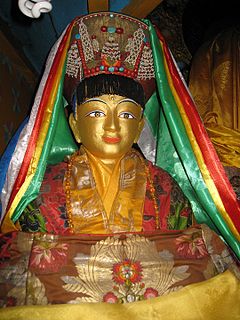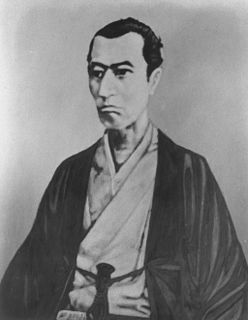A Quote by Hermann Hesse
We fear death, we shudder at life's instability, we grieve to see the flowers wilt again and again, and the leaves fall, and in our hearts we know that we, too, are transitory and will soon disappear. When artists create pictures and thinkers search for laws and formulate thoughts, it is in order to salvage something from the great dance of death, to make something last longer than we do.
Related Quotes
The man who has lived his life totally, intensely, passionately, without any fear - without any fear that has been created in you by the priests for centuries and centuries - if a person lives his life without any fear, authentically, spontaneously, death will not create any fear in him, not at all. In fact, death will come as a great rest. Death will come as the ultimate flowering of life. He will be able to enjoy death too; he will be able to celebrate death too.
But how to know the falsity of death? How can we know there is no death? Until we know that, our fear of death will not go either. Until we know the falsity of death, our lives will remain false. As long as there is fear of death, there cannot be authentic life. As long as we tremble with the fear of death, we cannot summon the capacity to live our lives. One can live only when the shadow of death has disappeared forever. How can a frightened and trembling mind live? And when death seems to be approaching every second, how is it possible to live? How can we live?
Birth leads to death, death precedes birth. So if you want to see life as it really is, it is rounded on both the sides by death. Death is the beginning and death is again the end, and life is just the illusion in between. You feel alive between two deaths; the passage joining one death to another you call life. Buddha says this is not life. This life is dukkha - misery. This life is death.
By 'coming to terms with life' I mean: the reality of death has become a definite part of my life; my life has, so to speak, been extended by death, by my looking death in the eye and accepting it, by accepting destruction as part of life and no longer wasting my energies on fear of death or the refusal to acknowledge its inevitability. It sounds paradoxical: by excluding death from our life we cannot live a full life, and by admitting death into our life we enlarge and enrich it.
Though I am young, and cannot tell Either what Death or Love is well, Yet I have heard they both bear darts, And both do aim at human hearts. And then again, I have been told Love wounds with heat, as Death with cold; So that I fear they do but bring Extremes to touch, and mean one thing. As in a ruin we it call One thing to be blown up, or fall; Or to our end like way may have By a flash of lightning, or a wave; So Love’s inflamèd shaft or brand May kill as soon as Death’s cold hand; Except Love’s fires the virtue have To fight the frost out of the grave.
Life will be wonderful when men no longer fear dying. When the last superstitions are thrown out and we meet death with the same equanimity as life. No longer will children's minds be twisted by evil gods whose fantastic origin is in those barbaric tribes who feared death and lightning, who feared life. That's it: life is the villain to to those who preach reward in death, through grace and eternal bliss, or through dark revenge.
If I had my life over again I should form the habit of nightly composing myself to thoughts of death. I would practise, as it were, the remembrance of death. There is no other practice which so intensifies life. Death, when it approaches, ought not to take one by surprise. It should be part of the full expectancy of life. Without an ever-present sense of death life is insipid.
If a general and his men fear death and are apprehensive over possible defeat, then they will unavoidably suffer defeat and death. But if they make up their minds, from the general down to the last footsoldier, not to think of living but only of standing in one place and facing death together, then, though they may have no other thought than meeting death, they will instead hold on to life and gain victory.
At the end of history the whole earth has become the Garden of God again. Death and decay and suffering are gone. . . . Jesus will make the world our perfect home again. We will no longer be living 'east of Eden,' always wandering and never arriving. We will come, and the father will meet us and embrace us, and we will be brought into the feast.
The trick is to keep exploring and not bail out, even when we find out that something is not what we thought. That's what we're going to discover again and again and again. Nothing is what we thought. I can say that with great confidence. Emptiness is not what we thought. Neither is mindfulness or fear. Compassion––not what we thought. Love. Buddha nature. Courage. These are code words for things we don't know in our minds, but any of us could experience them. These are words that point to what life really is when we let things fall apart and let ourselves be nailed to the present moment.
Again and Again, however, we know the language of love, and the little churchyard with its lamenting names and the staggeringly secret abyss in which others find their end: again and again the two of us go out under the ancient trees, make our bed again and again between the flowers, face to face with the skies





































